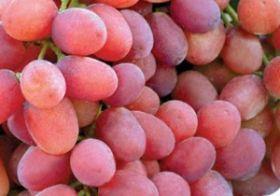
Japan may be considering granting market access to Australian table grapes in the near future, after this month offering to run cold sterilisation verification trials in Perth later this year.
While the agreement to run the trials was made by Japanese biosecurity officials on an informal basis, it displays a definite willingness to discuss market access, according to Australian Table Grape Association CEO Jeff Scott.
“`The Japanese authorities` have agreed informally to come out and do the verification trials, and we have sent back our application to say we accept them,” he told Fruitnet.com. “I’d argue that for them to be offering that informally, they’re a long way down the process of developing a protocol, although we haven’t seen it yet.”
The trials will aim to verify that cold sterilisation treatment can be used to control Queensland fruit fly and Mediterranean fruit fly (medfly) in table grapes, with testing focusing on the fruit fly-susceptible Red Globe variety at 1°C, 2°C and 3°C.
Japan’s biosecurity legislation requires verification trials prior to acceptance of a protocol, despite cold sterilisation’s general international acceptance as a treatment for fruit fly.
The trials will also be accompanied by a visit to Australia later this month by representatives from Japan’s largest supermarket chain, Aeon, who have expressed interest in Australian table grape supplies.
A delegation from Aeon is due to visit Mildura and Robinvale, the Victoria-based hubs of Australia’s export-focused table grape production, on 22-23 March, following a briefing in Melbourne on 21 March. Aside from table grapes, Aeon’s visit will also look at potential Australian supplies of citrus, almonds and processed foods.
The visit has been coordinated by the Japanese office of the Victorian Department of Primary Industries (VDPI), which has been liaising with companies in Japan about Australian agricultural products.
“That’s now starting to generate interest,” said Mr Scott. “We’re talking about the biggest supermarket chain in Japan, so it’s certainly great news.”
The obvious commercial interest from Japan may help speed up the development of a market access protocol, according to David Minnis of grape exporter M&A Exports.
“You need that commercial interest knocking on MAFF’s (Ministry of Agriculture, Fisheries and Forestry) door,” he told Fruitnet.com. “We’re hoping that will be a bit of a push-pull scenario.”
The potential market in Japan offers a good fit for Australian grape exports. Japanese buyers tend to ask for a darker-coloured grape than many Asian markets, a particular boon for Australian exporters in seasons like this year’s, which is producing darker grapes than the last few years.
“Our market intelligence tells us that we do have a niche market over there for good quality grapes,” detailed Mr Scott. “But it’s a case of the grapes being of good quality; we can’t compete with `suppliers like` Chile on price, but we can on quality.
“And we believe there’s a market over there for certain varieties we have. The presentation has to be of our best quality fruit, but we’re hoping to get good prices.”



